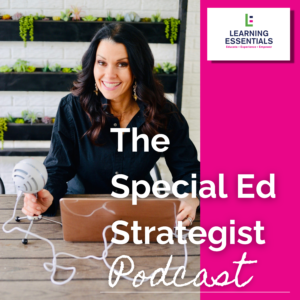Navigating The World Of Mental Health Services With Alex Williams, MSW
Alex Williams of The Anxiety Institute walks us through ALL of the essentials when it comes to navigating the complex world of mental health services. You won’t want to miss this conversation and all the wonderful and informative ways that Alex shares her expertise and knowledge with us! Discover more about mental health services in this episode.
Main Discussion Points:
- Treatment Levels:
- It is important to know what treatment levels are when it comes to mental health services
- Some treatment levels are more restrictive than others and some require hospitalization
- Resources:
- Use the school system to help you test or seek private testing and diagnosis
- Work with the school system to develop a plan that makes sense for you student
- Outpatient vs. Inpatient:
- There are various options for outpatient mental health therapy that range in implications
- Outpatient is the least restrictive with IOP and PHP altering your student’s day or school placement
- Support Should Fit The Student
- Support teams should coordinate efforts to create plans and strategies unique to your student
- What approach works for one student might not have the same results for your student
- Start by seeking a list of outpatient providers in your area and in your network
Where to find Alex:
Website: https://anxietyinstitute.com/
LinkedIn: https://www.linkedin.com/in/alex-williams-msw-82b70197/
Where to find Wendy:
Instagram – https://www.instagram.com/learningessentials/
LinkedIn – https://www.linkedin.com/in/wendy-taylor-7106b6a6/
Facebook – https://www.facebook.com/TutoringLE
Website: www.LearningEssentialsEDU.com




